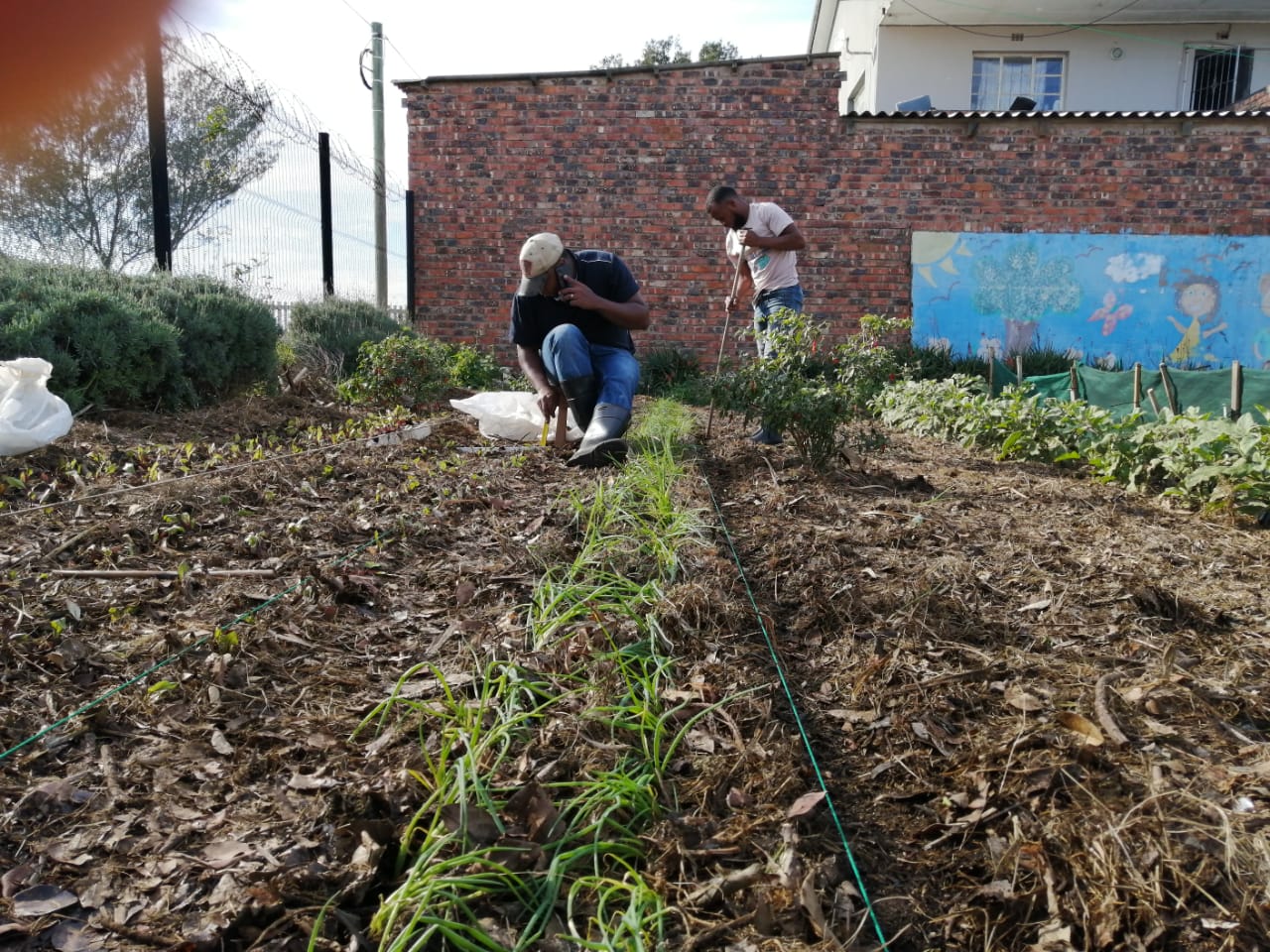
Regenerative Vegetable Production
Regenerative vegetable production is an agricultural approach that goes beyond sustainability, aiming to restore and enhance the health of both the soil and the surrounding ecosystem. By implementing regenerative practices, vegetable farmers can create thriving ecosystems, improve soil fertility, and produce nutritious crops while mitigating the negative impacts of conventional farming. Let's explore the principles and benefits of regenerative vegetable production and its potential to revolutionize our food systems.
The Co-op Community Trust facilitates regenerative farming in our communities. Mr. Lunga Mlangeni enthusiastically invests mentoring and training time to grow our food garden managers. The images below shows gardens at Joshua Project, Jeffreys Bay and Wittekleibosch Woman's Co-op.




Soil Health
At the heart of regenerative vegetable production lies soil health. Healthy soil is the foundation for productive and sustainable agriculture. Regenerative farmers focus on building soil organic matter, improving soil structure, and increasing microbial activity. They employ techniques such as cover cropping, composting, and minimal tillage to enhance soil health and promote nutrient cycling. These practices improve soil fertility, water retention, and the overall resilience of the farm ecosystem.
Plant Diversity
Diversity is another fundamental principle of regenerative vegetable production. Planting a variety of vegetable crops, cover crops, and companion plants fosters biodiversity and strengthens the farm ecosystem. Diverse cropping systems minimize pest and disease pressure, reduce the need for chemical inputs, and promote natural pest control. Additionally, incorporating pollinator-friendly plants and creating habitat for beneficial insects further enhances ecosystem health and resilience.
Crop Rotation
Regenerative vegetable production also emphasizes the importance of crop rotation. Rotating vegetable crops helps break pest and disease cycles, improves soil structure, and reduces nutrient depletion. By alternating crops with different nutrient requirements and growth characteristics, farmers can optimize soil health and minimize the risk of crop-specific problems. Crop rotation also contributes to the long-term sustainability of the farm by reducing the reliance on external inputs.
Water Conservation
Water conservation and efficient irrigation practices are integral components of regenerative vegetable production. Techniques such as drip irrigation, mulching, and rainwater harvesting reduce water usage, minimize soil erosion, and preserve local water resources. By optimizing water management, farmers can mitigate the impacts of drought and contribute to the overall sustainability of their farming operations.

Integrated Systems
Regenerative vegetable production acknowledges the interconnectedness between plants, animals, and the environment. Integrating livestock, such as chickens or goats, into vegetable production systems offers multiple benefits. These animals contribute to nutrient cycling through manure deposition, help control weeds and pests, and provide additional income streams for farmers. The integration of animals also fosters a holistic approach to farming, bridging the gap between crop and livestock production.
Reduce Environmental Pollution
The benefits of regenerative vegetable production extend beyond the farm. By minimizing the use of synthetic fertilizers and pesticides, regenerative practices reduce environmental pollution and promote human health. Consumers can enjoy vegetables that are grown using environmentally friendly practices, free from harmful residues. Additionally, regenerative vegetable production supports local food systems, strengthens rural economies, and enhances community resilience.
As the demand for sustainable and locally sourced food continues to grow, regenerative vegetable production offers a viable solution. By adopting regenerative practices, farmers can cultivate healthier soils, increase biodiversity, and produce nutritious vegetables in an environmentally conscious manner. Consumers, policymakers, and farmers all play a crucial role in supporting and promoting regenerative vegetable production. Through our collective efforts, we can transform our food systems, nurture the land, and create a healthier and more sustainable future.
In conclusion, regenerative vegetable production represents a paradigm shift in agriculture, addressing the pressing challenges of soil degradation, environmental impact, and food security. By prioritizing soil health, biodiversity, and sustainable practices, regenerative farmers are leading the way in cultivating healthier farms and resilient food systems. Embracing regenerative vegetable production has the potential to revolutionize our approach to agriculture, ensuring a more sustainable and nourishing future for generations to come.